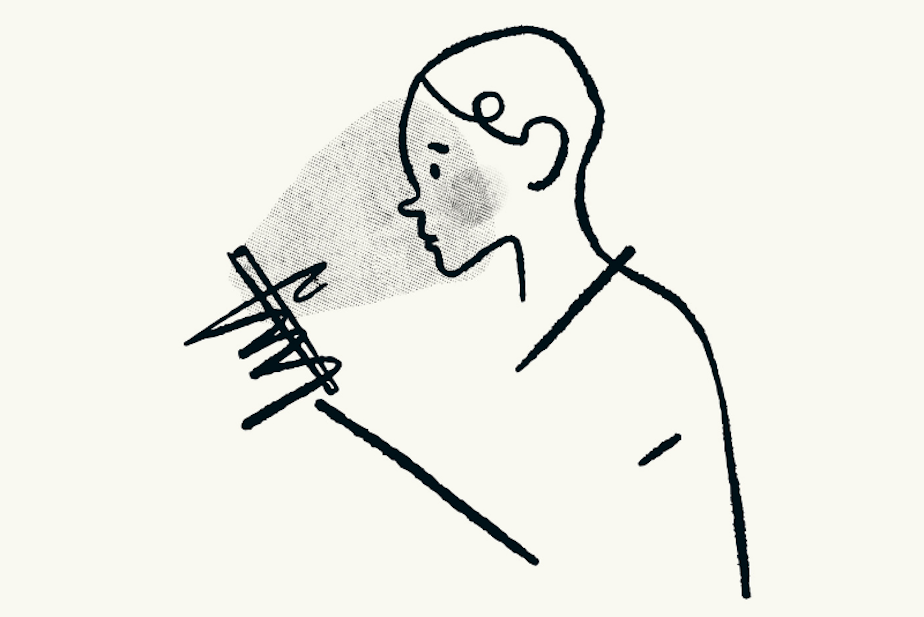Why misinformation is 'sticky' and sometimes easy to fall for

MisinfoDay is an annual education event hosted by the Center for an Informed Public (CIP) at the University of Washington and Washington State University’s Edward R. Murrow College of Communication. The goal is to teach high school students how to identify and combat online misinformation.
Maddy Jalbert is a postdoc scholar with the CIP. She's an expert on why people fall for misinformation. She told KUOW’s Kim Malcolm about some of her findings.
This interview has been edited for clarity.
Maddy Jalbert: One of the big reasons people fall for misinformation is that we don't always question whether information is true. When we go about our daily lives, for example, you're probably not questioning, ‘Oh, is she lying about her name? Is she lying about where she's from? Is her name really Maddy?’ We often don't go about just questioning everything. In fact, we generally go about the world assuming that what we're told is true, unless we have a reason to question it.
Kim Malcolm: And once someone has been given a piece of information, even if it turns out it's untrue, it can be hard to get it out of your head, right?
Information can be very sticky. Once we learn something, we just can't go back and erase the information. Think about in the courtroom if someone gives evidence and then withdraws it. It's not like the jury can simply pretend that they've never heard the evidence before.
I'll give you an example of something that was sticky for me. You may have heard that you lose most of your heat through your head, so you had a parent that told you to wear a hat. You may think when it's cold out, the most important thing you can wear is a hat. But you've also probably thought, "if I'm going outside, am I going to be warmer if I wear a coat and I wear warm pants and I wear boots, and I don't wear a hat, or if I go outside naked with just a hat?"
Sponsored
We can see that we hold this false belief — we lose most of our heat through our head — but we're really bad at updating that based on our experience. We've never really connected our experience to the belief, so these things can just be really sticky.
You've also studied something called the illusory truth effect. What is that?
The illusory truth effect refers to the phenomenon that merely repeating information makes it seem more true. This occurs for true information and for false information. If you've seen something before, you're more likely to believe it when you come across it again. Before it was ever studied in a lab, demagogues knew that it worked, that just merely repeating something over and over was an effective tactic to spread that belief.
You study misinformation, but you also look at how to fight it. What is the key for individuals, even if they think they're super savvy about what they're looking at?
That is a good question. There's still a lot of work to be done, but I would say one key thing is just being aware that everyone is susceptible to misinformation. As individuals, we have a tendency to believe that others can be biased, but we ourselves are not. But in fact, all of us are susceptible to misinformation. This is really just a byproduct of the way our brains work. Our brains like to take shortcuts because we really just can't do everything all of the time. And typically, the shortcuts work. When we come across something and it feels true, we trust the source. Oftentimes, that information is true, but when we rely on these shortcuts, it's inevitable that there are going to be false beliefs and misinformation that sneak in. It's really just part of being human.
Sponsored
It has come up in conversation a lot over the last couple of years that media literacy needs to be required curriculum for middle school and high school students. What do you think of that?
I think that media literacy is one of the most important things you can teach. Every day I'm on social media, and with social media, we tend to build habits. If we can teach people to have good social media habits and good media habits when they're younger, as they get older those habits are going to be useful for the rest of their lives.

Listen to the interview by clicking the play button above.





